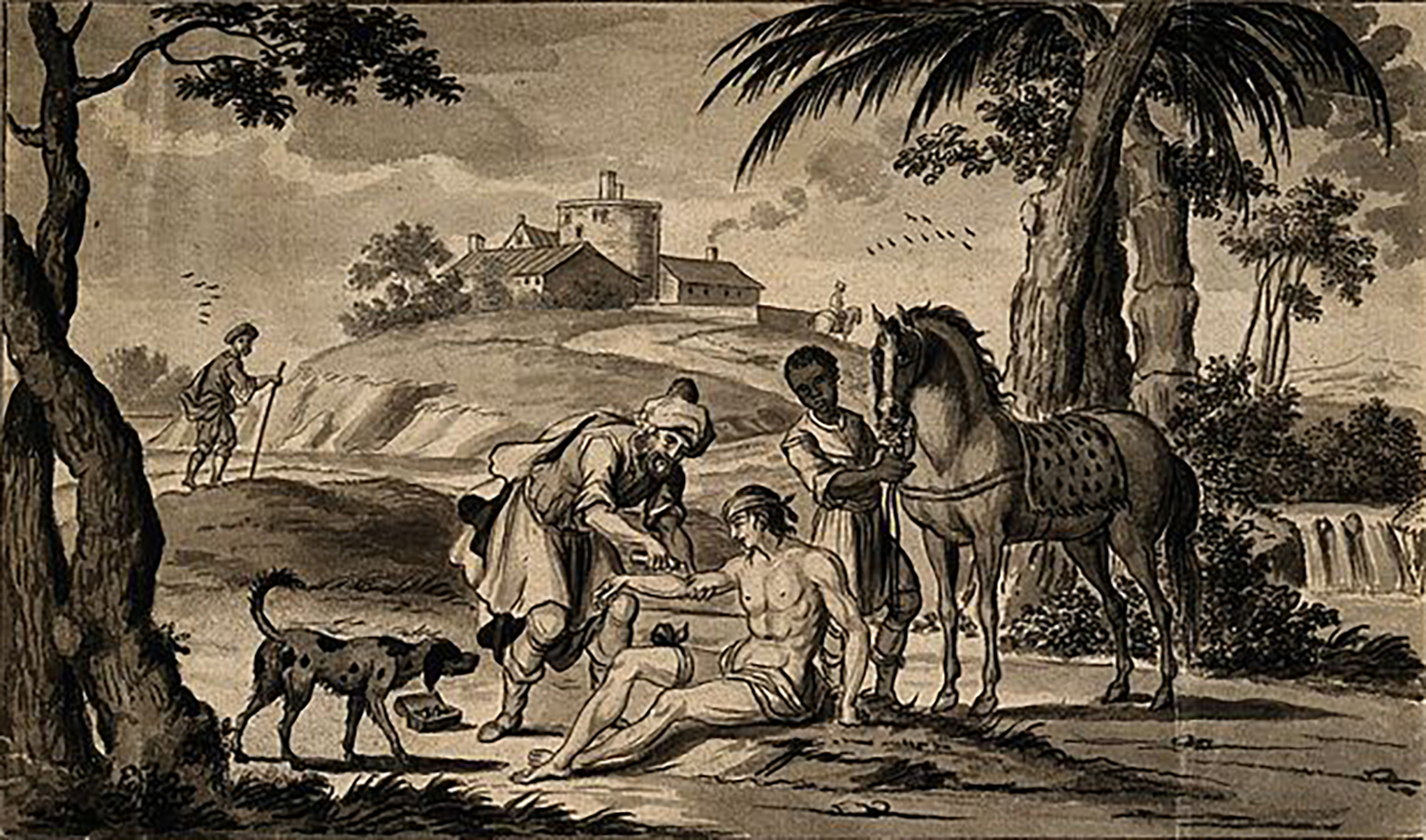Talk 1: “Who is my Neighbour?”
The Gospel says, “Love your Neighbour as yourself”.[1] The question then follows, ‘But who is my neighbour?’ We often reply to that question by saying that my neighbour is not only those I am living with on this earth, but all people who are in need. Jesus told one of the most well-known stories in the Bible, the Good Samaritan to answer this question.[2]
An expert in Jewish law, seeking to test Jesus, asks what he must be done to inherit eternal life. Jesus responds with a question in the context of the man’s framework, “What is written in the law? How do you read it?” To which the man replies, “Love the Lord your God with all your soul and with all your strength and all your mind and love your neighbour as yourself.” Jesus tells him to go and do likewise. Why did Jesus reply this way and not point directly to Himself?
In the context of the Gospels, Jesus highlighted the need to respond to His Kingdom message, where responding in love to others is an overflow of God’s provision when people turn to Him in faith. This is further unfolded in the New Testament that declares that God gives the gift of the Spirit who pours His love into our hearts.[3] The fruit of the Spirit [4] in our lives is expressed in loving, relational terms.
The story continues. The lawyer’s next question, ‘Who is my neighbour?’ is an attempt to create a distinction between who is my neighbour, and who is not. For in Jewish culture Jews did not help sinners and in the lawyer’s eyes, Gentiles are non-neighbours. What makes Jesus’ story shocking is that to the Jews, the Samaritans were regarded as traitors, half-breeds, who intermarried with pagan nations and so were seen as unfaithful to the nation of God’s people, Israel. A Samaritan would be the last person expected to be the hero of the story.
Jesus picks the road from Jericho to Jerusalem as it is a treacherous 17 mile journey where robbers hid in caves that line the road. The man is beaten, stripped of his clothes, robbed and left for dead. You would expect the Levite and the Priest to be the good guys, but they pass by this ‘messy’ situation. The two ways of identifying Middle Eastern ethnic groups were by their speech and their clothes. This man was either unconscious or dead and naked. So, they wouldn’t have known if he was a Jew and perhaps, they feared being unclean from touching a corpse. But no motive is given for their non-action.
The surprising (and shocking!) part of the story is that the Samaritan takes pity on the wounded traveller and attends to his wounds. Finally, he takes him to the Inn and leaves money for his care and lodging. His ministry takes care of the victim from start to finish.
When Jesus tells His story to answer the question ‘Who is my neighbour’, He ends by asking the simple question, ‘Which of the three proved himself a neighbour to the man who fell into the bandits’ hands?’ Jesus has turned the Lawyer’s question on its head. The neighbour, Jesus makes clear, is not the victim but the Samaritan who crossed the road for him. The Lawyer couldn’t bring himself to utter the word Samaritan – for the concept of a ‘good’ Samaritan was outside the realm of possibility in the mind of a Jew. He only could reply, “The one who had mercy on him.” Jesus said, “Go and do likewise.”
The questions for us as teachers are:
- How can I train my students in the context of my class and school culture, to learn to manage their emotions, to act with restraint and to sacrifice their desires and wants in order to be a loving neighbour to others?
- How can I shape and equip them to love and serve others as their neighbours, including strangers and even enemies in the school, the wider community and online?
All three people in the story saw the beaten man, but the difference was their heart attitudes and how they acted toward the man. For a true neighbour is the one who crosses the road for others.
Our students are exposed to so much information and so many images around what is happening in the world that brings pain and suffering, that it is so easy to become desensitised to the needs of others or feel that the needs are so vast that we can’t make a difference. Research shows that the constant use of social media platforms results in both adults and students becoming more self-oriented in their focus and people being objectified.
There is a lot of road- crossing we can do in our schools. We need to creatively think about how we can assist our students to pay attention and to see, feel and respond as neighbours. Our students need to be encouraged to cross the road and discover that all people are to be valued and cared for. Through the course of this term’s talks, we will explore ways for our students to learn to be a neighbour. Giving away our lives for others is the greatest of all human acts. This is an expression of our true humanity.
“If anyone would come after me, he must deny himself and take up his cross daily and follow me. For whoever wants to save his life for me will lose it, but whoever loses his life for me will save it.”[5]
Grace and Peace,
The Excellence Team
[1] Matthew 2:38
[2] Luke 10:25-37
[3] Romans 5:5
[4] Galatians 5:22-23
[5] Luke 9:23-24

